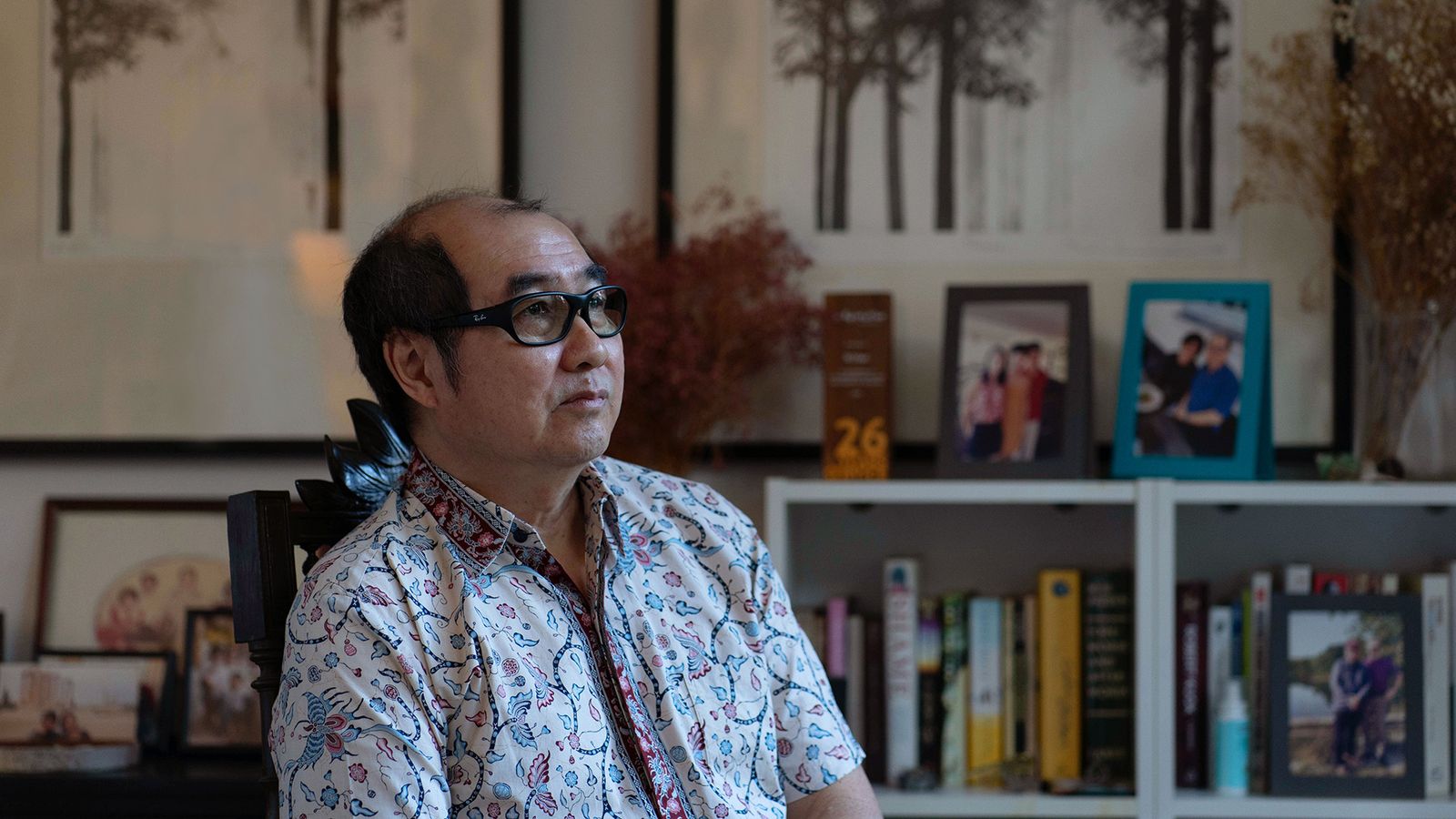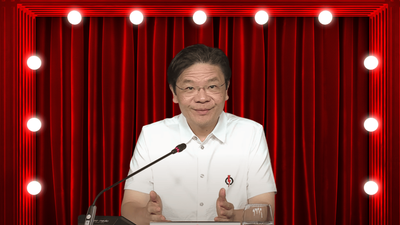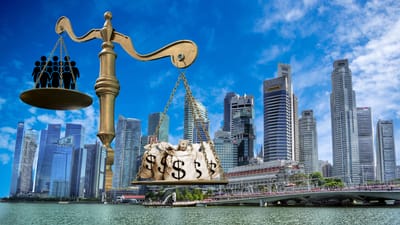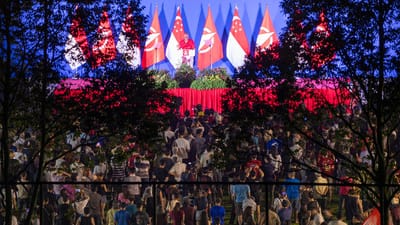When Chew Kheng Chuan heard a knock on his door on the morning of June 20th 1987, he knew exactly who had come to chauffeur him. KC, as he’s known to friends, was a rising star in society. Singapore’s first-ever undergraduate at Harvard had returned in 1983 to reunite with his intellectual comrades, Tharman Shanmugaratnam, now Singapore’s senior minister, and Yeoh Lam Keong, former chief economist at GIC, a sovereign wealth fund.
In 1978, KC, Tharman and Lam Keong had, as teenagers—long-haired, bare-bodied, slightly dishevelled in one photo—published but we have no legends, a collection of poems on Singapore, from military service to materialism. By 1987, age 30, they had promising careers. KC had first worked at DBS before starting his own firm, while Tharman and Lam Keong were economists, at the Monetary Authority of Singapore (MAS) and GIC respectively.
When KC heard the knock, he wasn’t sure how long the interview would be, so he went to take a shower, and calmly dressed himself in a suit. KC lived in an old, pre-war house with thick walls, iron grilles over the windows, and a solid bolt across a thick door. He told Chia Kwok Ying, his then wife, not to let anybody in until he was ready. As the banging got louder, the dogs outside started barking, and KC’s neighbour yelled: “I’m going to call the police!”
The people on his doorstep sniggered. They were the police—Lee Kuan Yew’s secret police. Having just seen mugshots of his friends in the papers, KC had been expecting the officers from the Internal Security Department (ISD).
Over the course of the following days, they subjected KC, he claims, to psychological and physical torture—Sim Poh Heng, ISD’s deputy director, slapped him about 50 times, until the inside of his mouth was bleeding. It was the start of an ordeal that would see KC spend, over two spells, a total of 13 months in detention without trial. The ruling People’s Action Party (PAP) claimed that the 22 activists, church workers, and opposition volunteers it arrested in Operation Spectrum were “Marxist conspirators” plotting to overthrow the state.
Just two years before the Berlin Wall fell, and with the Malayan Communist Party defanged and about to sign a peace treaty with Malaysia and Thailand, it was an outlandish claim. That many Singaporeans accepted it reflected Lee’s messianic control over society. The government has never charged the 22 with a crime and, aside from their torture-induced confessions (many later recanted), has yet to offer conclusive proof of the plot. (ISD did not return requests for comment for this piece.)
KC still doesn’t know what he did wrong, including in his junior year abroad in London: “Whatever I did in London as a student activist, Tharman and Butch [Lam Keong] did three times more!” KC jokes, referencing the fact that two of them—both still his good friends—were there three times as long.
In London they, along with others such as Jane Ittogi, Tharman’s wife-to-be, regularly met dissidents. “It was Tharman who introduced me to Tan Wah Piow,” KC says, about the exiled student activist and Lee’s bête noire. In 1987, the ISD hauled in Tharman and Lam Keong for a few days of “civil” questioning, says KC, but then released them. The episode doused KC’s youthful activism: “Bloody Spectrum really blew me out of the water.”
Over the years, KC slowly worked his way back into the mainstream, eventually serving as chief fundraiser of the National University of Singapore (NUS) and later Nanyang Technological University (NTU). He simultaneously maintained a presence in civil society, including 26 years on the board of The Substation.
Yet his straddling of both the establishment and the outside has led some to doubt KC’s convictions. Most recently, some artists criticised the KC-led board for not doing more to save The Substation. By crippling a generation of activists—and co-opting many—Operation Spectrum may have served the state’s real purpose.
Born in 1957, KC is the youngest of five. His parents named him, their first and only boy, Kheng Chuan, the celebration of completeness. The family nicknamed him “Po Po”, precious, which is what they still call him.
He and his four older sisters grew up in one of four houses on a 77,000 sq ft compound on Devonshire Road, alongside 15 other Peranakan relatives. It was the ancestral home of descendants of Chew Boon Lay, a Hokkien who immigrated penniless from Amoy to Singapore in the 1870s and built a fortune through the Ho Ho Biscuit Factory, at one time the biggest in the region. (“Ho” means good in Hokkien.) “The thing that makes me a bit proud of my great grandfather is that his wealth was not as a trader, or as a merchant, but as an industrialist, he was a manufacturer.”
Though Boon Lay is memorialised through an eponymous road, of his biscuit fortune only crumbs remained, KC says, by the 1960s: “Shirtsleeves to shirtsleeves in three generations.” When he was 12, KC’s family was whisked off to a smaller property in Upper Serangoon.
KC nonetheless spent some formative years in that fading Devonshire palace. In 1963, the television arrived in Singapore, KC says, and in his favourite uncle’s room got hooked on “Perry Mason”, “Leave it to Beaver”, “Combat!” and all the Westerns. The following year, he got into the stock market. Another uncle helped the underaged seven-year-old put S$320 of ang pao money (equivalent to about S$1,400 today) into a thousand shares of CDL, the property developer, which he sold shortly after for a small return.
KC was much closer to his late mother than his late father, who was “quite distant”. Still, around that time, KC became his father’s official gear shifter on the Singapore roads. Little KC, who couldn’t even see above the dashboard, would sit by the gearbox. “He didn't tell me which gear to change to. I sort of figured it out. By that time I had read some books on driving.”
By the age of seven, then, KC had learned how to appreciate cinema, play the stock market, read driving manuals, shift gears, and also ride an adult bicycle. Shirtsleeves, perhaps, but still a pretty Ho Ho childhood.
Today, KC lives in a second-floor rental apartment on Linden Drive, a hidden oasis of post-war quarters ringed by lush forest, far from the nearest bus stop. Its living room is defined by its bookshelves, on which sit Dostoevsky, W. H. Auden, Han Suyin, Ram Dass, Thomas Piketty, Zadie Smith, James Puthucheary, SR Nathan, Brenda Yeoh, and many others.
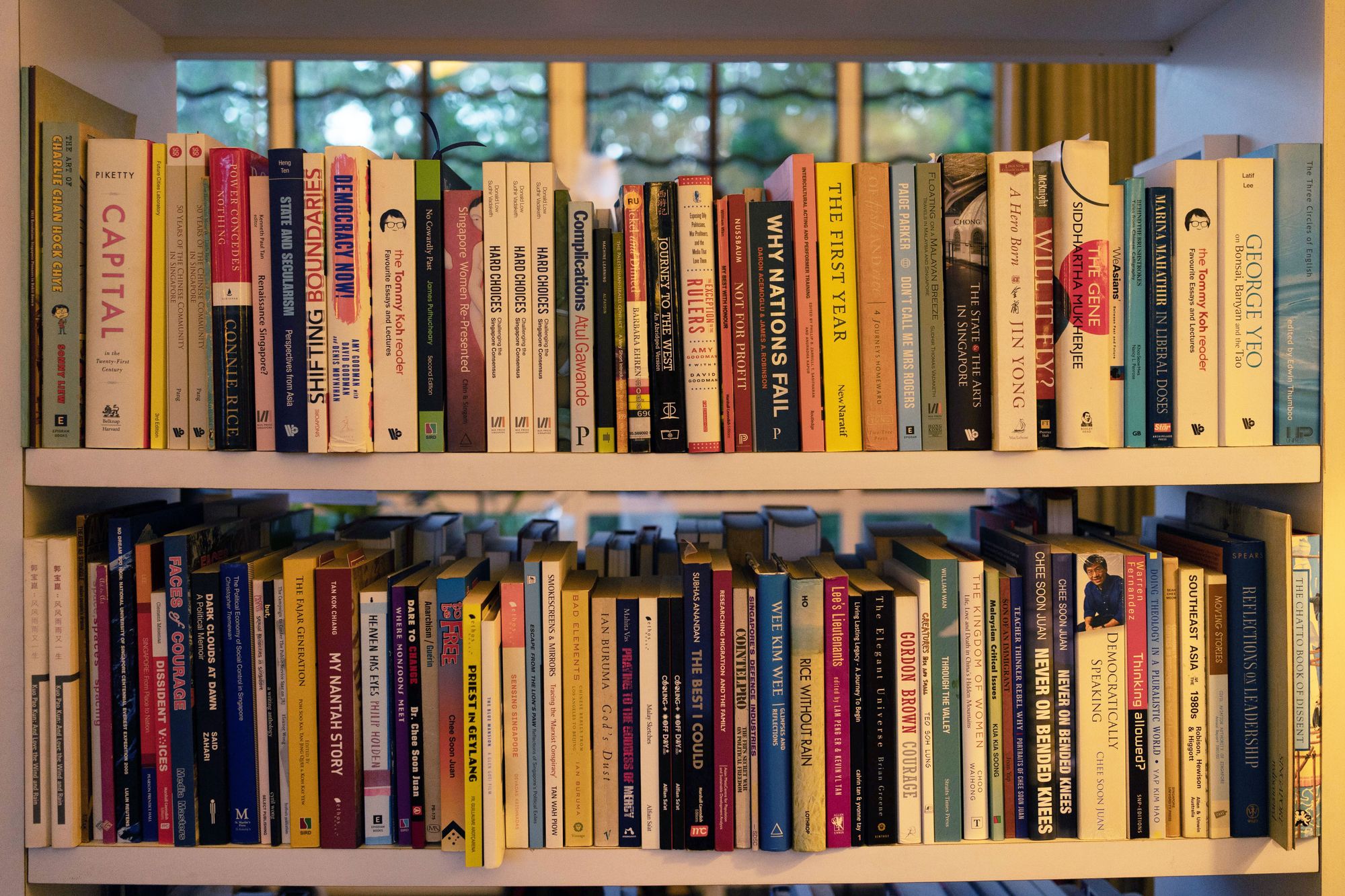
I train myself to walk by these temptations by blocking off my peripheral vision and focusing purely on the fount of knowledge. Unfortunately, the poor sod can hardly see me. KC suffers from cone rod dystrophy, a visual condition that significantly impairs his sight. He prefers to sit with his back to the windows so the incoming glare doesn’t blind him. There are moments when he cannot make out a word or a face in front of him. Reading hard copy is difficult. “It’s very sobering because it’s so disabling.”
KC often wears dark glasses, even indoors, giving him a sort of Jack Nicholsonish patina of calibrated distance. He also has the garrulous laugh, and the occasional, well-timed expletive delivered with a raspish oomph. “This kind of involvement in politics also cannot, fuck off lah,” KC says, about his post-Spectrum mindset.
KC is both a fascinating and frustrating interviewee, because he keeps running down these intellectual tangents of indeterminate length and then somehow pulling us back. When he told me about his first stock investment, he got sidetracked and returned to the story only after 23 minutes.
Many of his meanderings are about Singaporeans in public life. KC can’t talk about any of them without also mentioning their great grandmother, their cousin’s wife, and their first job. He is like a cross between Sima the Indian matchmaker and LinkedIn.
Such is his grasp of information, stories and arcane facts that he prefaced a conversation on the meaning of life with a six-minute soliloquy on the best grapes in Singapore. Not from Cold Storage, not some fancy-pants Japanese or Korean market, but from HDB estate fruit shops. First, he says, it’s not just atas HDB estates like Holland Village that have them, but all, “Hougang, Toa Payoh, Bukit Batok.” Second, they don’t come cheap: S$17-18 a bunch, three times what it costs in NTUC. Third, he described their texture with a Peranakan Hokkien word, “snaowt”. “The texture is a certain solid crispiness. Not crispy. It’s springy. It’s just fantastic lah, the texture…with this you have a sense that it’s hard throughout. Solid throughout. It’s soooo delicious. And it’s sweet…that is my treatise on grapes.”
Given KC’s ability to geek out on any topic, one can understand why, as a 13-year-old at Singapore’s Anglo Chinese School (ACS), he was naturally drawn to two boys who’d later emerge as recognised thinkers of their generation: Tharman and Lam Keong.
The three of them first faced censorship when they were “Pre-U 2” students (final year of high school), in 1975. With some ACS classmates, they wanted to organise a seminar on education in Singapore, which would critique the very system they were about to leave. (“Not creative enough, too much reliance on exams, all these sorts of things.”) Numerous speakers, including officers from the Ministry of Education, accepted their invitations to speak. But when the ACS principal found out, he cancelled the seminar.
Around this time, two women sparked KC’s interest in politics. Linda Lim, an economist, had just completed her undergraduate education at Cambridge, and had written a political critique of Singapore. “I found it very, very significant.”
Meanwhile, Chew Kheng Leng, KC’s second-oldest sister, had won a scholarship to spend a year abroad during high school in Florida (their parents couldn’t afford to send any of them abroad). This inspired KC, as a 16-year-old, to apply and secure his own one-year scholarship to a high school in Washington state. “She was an early, significant influence in terms of my becoming more aware of political issues.”
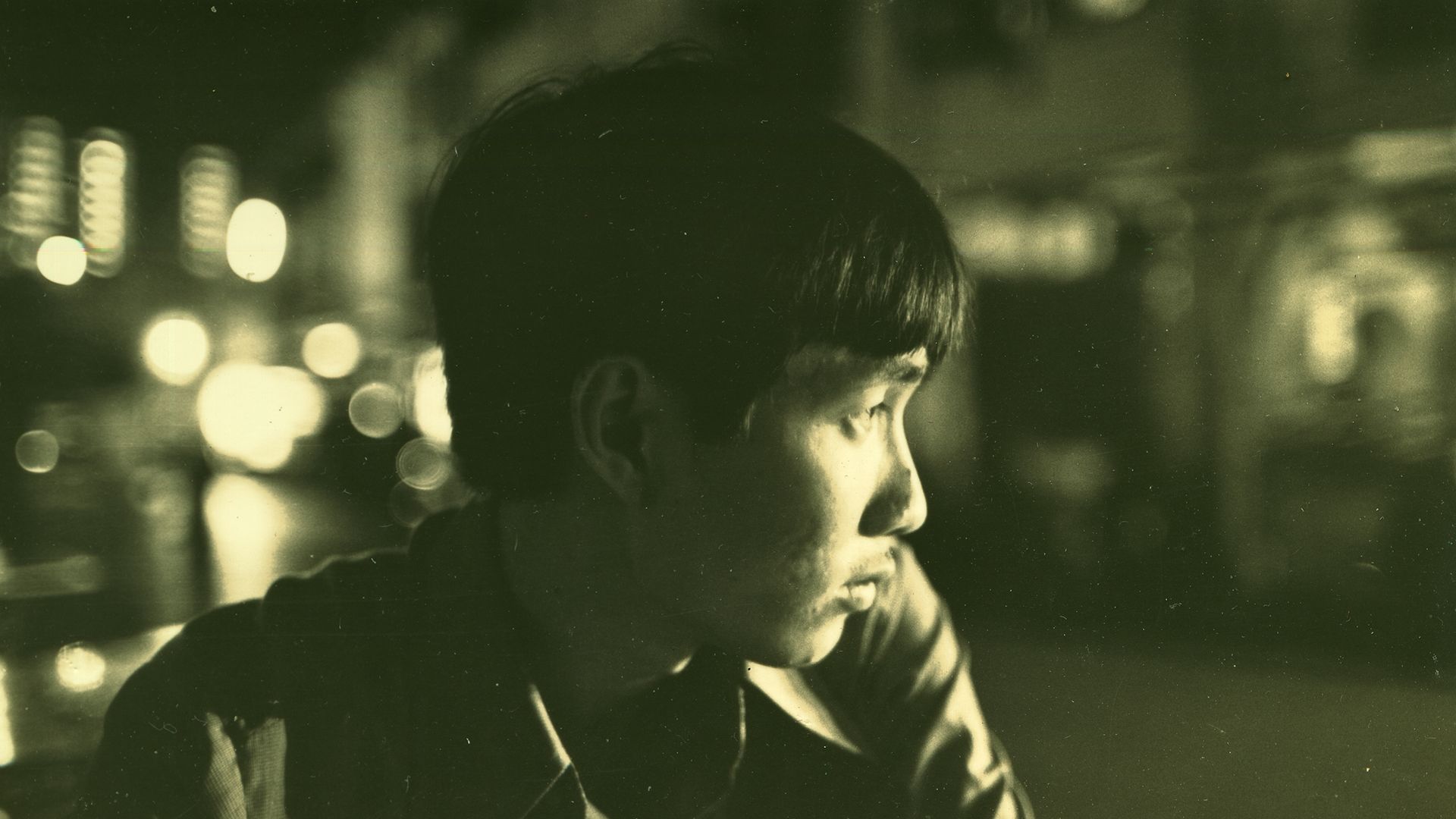
During National Service (NS), KC grew even closer to Tharman. He served as an 81 mortar commander at the 6th Singapore Infantry Regiment in Tuas. “I couldn’t stand NS, so every chance I could, I would book out.”
But he had to return by midnight, and his family home in Upper Serangoon was an hour away by motorcycle. So instead, he started spending evenings at Tharman’s home in Upper Bukit Timah: dinners, palavers, Frantz Fanon study sessions. “He was really very advanced. Even from that time I told myself Tharman is the sharpest mind of our generation.”
After NS, and before leaving for college, KC and Lam Keong went to a village in Jakarta for some development work. KC then travelled across the whole of Java to Bali. His memorable pilgrimage was not to a sun-kissed beach but, rather, a midway stop to a decrepit, rundown building in Bandung, where in 1955 the Non-Aligned Movement held its famous Bandung Conference.
“By that time already, I had been what in Paulo Freirian terms would be called conscientised…which I suppose has been bastardised to what is called 'wokeness' now [laughing].”
From 1978, at Harvard, in Cambridge, Massachusetts, KC engaged in some student activism, including at the Southern Africa Solidarity Committee, a ‘Free Mandela’, anti-apartheid student movement. (Alongside classmates such as Nicholas Kristof, New York Times columnist.)
He spent much time in Harvard’s (then) 103 libraries, Cambridge’s cafes and, on Friday and Saturday nights, The First Parish, a unitarian church: “You go to the basement, and they will be having a live performance of musicians [such as Joan Baez]. And they will serve hot chocolate or apple cider.”
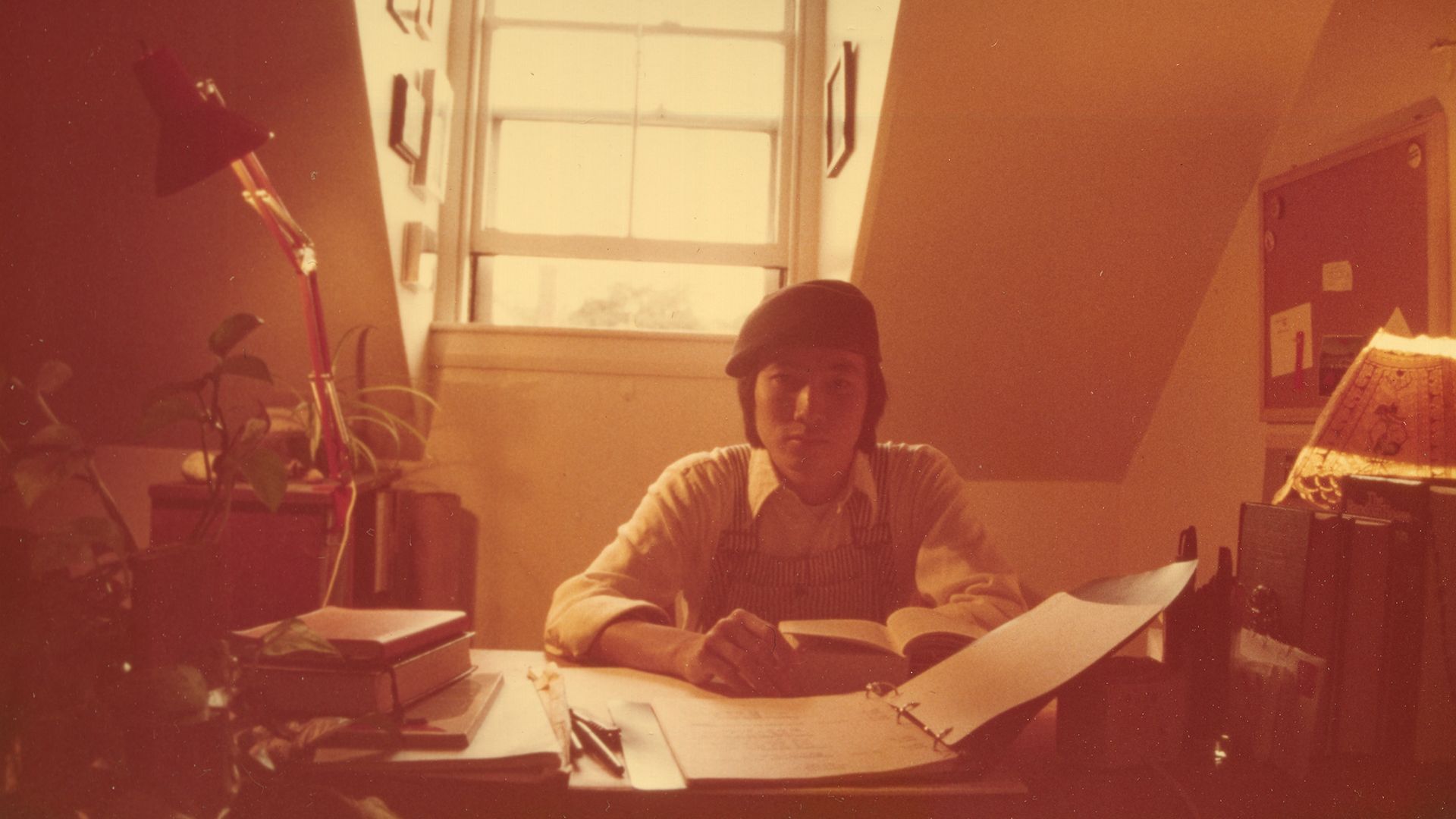
But he missed Tharman and Lam Keong, who were both at the London School of Economics (LSE), and was curious about what a British education might be like. So in 1980 KC decided to spend that fateful junior year in London, staying with Tharman (and a classmate of his) in an apartment next to Battersea Park.
This was one year after Margaret Thatcher was first elected, with leftists beginning to decry her neoliberal ideologies that would later be known as “Thatcherism”: including the privatisations of state assets, crushing of trade unions, and conservative social mores.
Within LSE, they engaged in activism with other student societies. For instance, to protest a student fee hike, KC and others occupied the office of Ralf Dahrendorf, LSE director. Harvard probably didn’t miss him.
Outside LSE, KC, Tharman and Lam Keong’s activism was mostly through two organisations: the Malaysian and Singaporean students Associations in London (MASSAL); and the Federation in the United Kingdom and Eire Malaysian and Singaporean Students Organisation (FUEMSSO).
On occasion they protested outside the Singapore embassy in London. “At that time, 1980, a few people were still in detention from [Operation] Coldstore…Poh Soo Kai. Lim Hock Siew. Said Zahari and Ho Piow.” (In 1963’s Operation Coldstore, Lee Kuan Yew had, with the support of the British and Malaysians, rounded up 113 of his political opponents, alleging a communist conspiracy.)
Following the May 13th 1969 ethnic riots in Malaya, FUEMSSO had grown much more critical of both governments, much to their chagrin. “Fifteen years after separation [1965], the traditions still held sway of Malaysian and Singaporean students organising together.”
Today, whenever I meet UK-educated Singaporeans of that generation, they often utter the word “FUEMSSO” wistfully, a reminder of youthful rebellion. (This Twitter thread summarises its history, naming Tharman and Maria Chin Abdullah, Malaysian politician and former chairperson of Bersih 2.0, as “notable members”.)
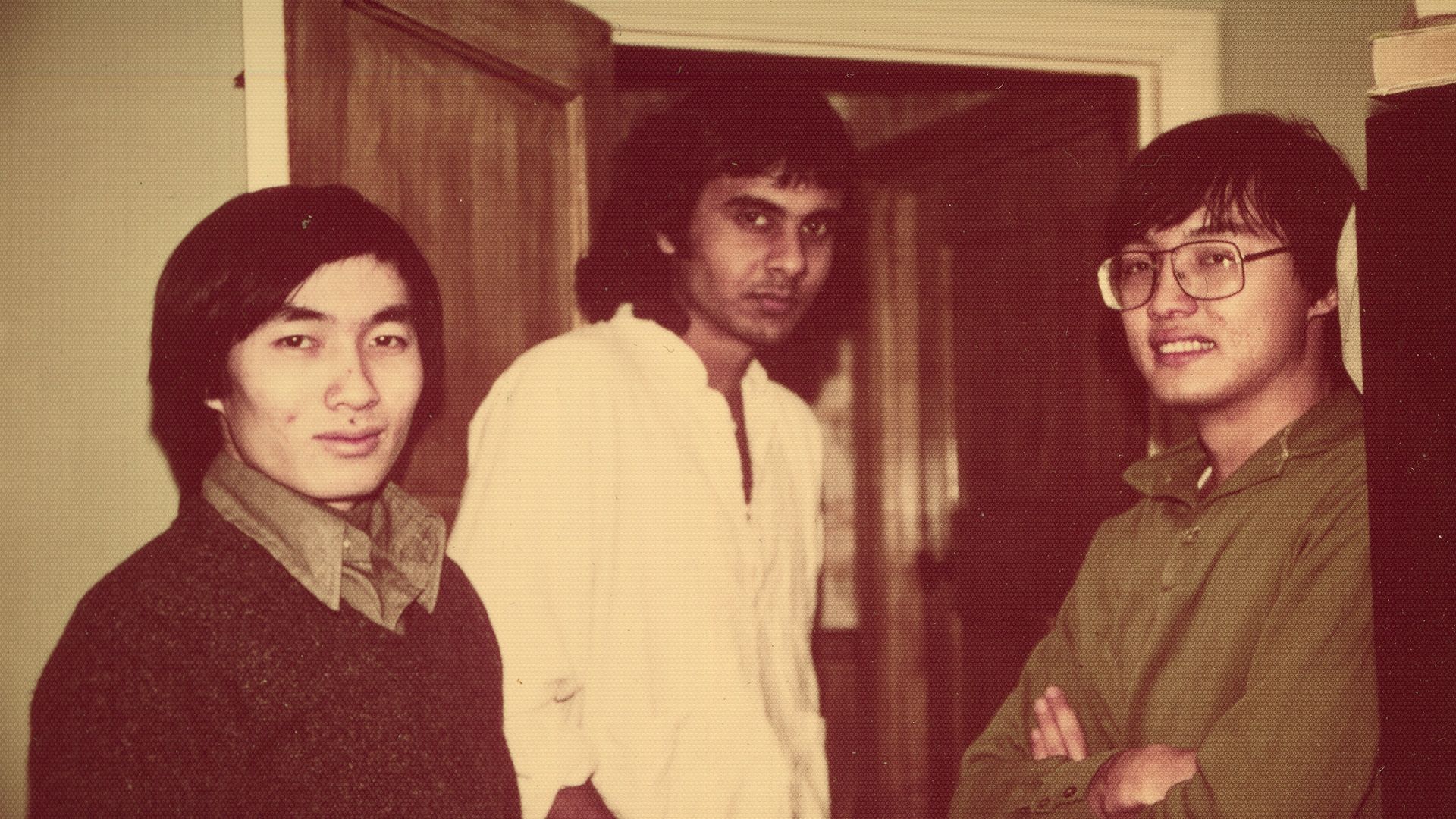
Both MASSAL and FUEMSSO were heavily influenced by Tan Wah Piow, says KC. Tan had been president of the University of Singapore's Students' Union (USSU) in 1974 when he was charged with unlawful assembly and rioting and sentenced, in 1975, to a year in prison. Upon his release, and before enlisting for NS, Tan fled to the UK, worried for his safety. “For him it was a carrying on of USSU to the UK,” KC says of Tan’s influence on FUEMSSO. “He tapped into a ready network of student activists. And he gave it leadership.”
Because of Tan’s reputation, KC says, they did not want to be seen cavorting publicly with him. So Tan met a select group of students privately for a regular study group. This included KC, Tharman, Lam Keong, Itoggi, and Chia, KC’s then girlfriend, and later wife and mother of his three children. (They’ve since divorced.)
“We were conscious of our left-wing views and we wanted to understand Marxism more clearly…it was a seminar on Marxist economics and politics, plus Singapore politics and Malaysian politics.”
Yet because it was not open to the public, the ISD would later call it, says KC, a “secret study group…they want to make it sound very nefarious and sinister.”
When KC, Tharman and Lam Keong flew back, separately, in 1982-83, immigration flagged each of them at Changi Airport, and told them to report to ISD for an interview. KC told ISD: “We do not know Tan Wah Piow. We only met him in public events.”
After those arrival interviews, KC, Lam Keong and Tharman were (seemingly) free to continue with their work. They wanted to “find something meaningful to do by way of participating in the social and political development of Singapore.”
Despite Singapore’s rapid economic growth, the early-1980s saw the first real threats to Lee Kuan Yew’s popularity and ideologies. In 1981, Joshua Benjamin Jeyaretnam (JBJ) of the Workers’ Party won a by-election, thus breaking the PAP’s 16-year stranglehold of parliament. PAP politicians, including Tan Cheng Bock, had started to call for more affordable housing, better geriatric care for an ageing population, and a more participatory democracy. The PAP introduced the controversial Graduate Mothers Scheme, a form of eugenics, in 1984 and then had to reverse it a year later following public acrimony. Singaporeans—how dare they—had started answering back.
After a short stint in DBS, KC founded Wordmaker Design, a design and publishing firm. He also re-established ties with various activist groups, including social workers and theatre practitioners. The same way people congregate for golf, mahjong or yoga, KC says, so do those seeking social change. “There's a natural affinity and even an occasion for gathering…right now it’s Jolovan Wham, the Transformative Justice Collective. These are the contemporary-day expressions of what we were doing. We don't register as a society because of the particularities of Singapore society. It is inimicable to such groups.”
Spectrum knitted together disparate groups, including Catholic social workers (e.g. Vincent Cheng), Law Society activists (e.g. Teo Soh Lung), Theatre folk (e.g. Wong Souk Yee), former USSU members (e.g. Lim Li Kok), former Singapore Polytechnic Students Union members (e.g. Tan Tee Seng), and members of the London study group (e.g. KC, Kenneth Tsang and Jenny Chin).
Many of the 22 did not know each other. It seems like their only real connection was their political leaning. ”Operation Spectrum is a very thoughtful name you know, because here's a spectrum of people who were critical of the PAP.”
KC’s first detention was for three months and his second, ten. Together it included six months in solitary confinement.
Many were rearrested because following their release they recanted their torture-induced confessions and alleged police brutality, in a statement KC had drafted (but did not himself sign, following pressure from Chia). Details of the arrests and detention of the 22 are beyond the scope of this piece, but are well-documented, for instance in 1987: Singapore’s Marxist Conspiracy 30 Years On, a book by detainees, and “Untracing the Conspiracy”, a documentary.
We might never know what exactly bothered Lee Kuan Yew about these do-gooders. It’s plausible that the mid-80s’ recession, JBJ’s (and the WP’s) rising popularity, and a more assertive and active Law Society, following Francis Seow’s election as president in 1986, all fed his paranoia about losing control.
“The absurd thing is: What were we involved in? Were we building bombs? Did we go to the Comintern to apply as members? I mean, what the fuck man, really, you know. We were just interested in the welfare of our country, right and got zero connection or links to any proscribed party…we were trying very hard to, you know, understand economics and left wing politics and conservative politics, and just to try and make sense of the whole picture as earnest young students, right. And this is the kind of treatment you know, this kind of response and reaction.”
While in detention KC received support from people inside and outside the system. Dan Gluck, his best friend from Harvard, was actually in KC’s house that morning when the ISD came for him.
Gluck returned to the US and sent thousands of letters of appeal to Harvard faculty, US senators and congresspeople (borrowing US$20,000 to pay for the postage). They in turn flooded Lee with letters. Dan also put up a “Free KC” banner in Harvard Yard. Ten years after KC had engaged in activism at Harvard, he had become the subject of it.
JY Pillay, a distinguished civil servant who was then managing director of MAS, sent an instruction to ensure that Wordmaker Design, KC’s design and publishing firm, would continue to produce MAS’s annual report, helping keep him financially afloat. “During my detention, there were people in the establishment who very much were sympathetic to me.”
In the early 90s, other governmental elites voiced or showed their dissent, including Walter Woon, later attorney-general, and S Dhanabalan, cabinet minister. So too, in 2001, did Tharman.
All this dovetailed with KC’s seamless reintegration into Singaporean life, though it’s worth contemplating what society may have lost.
Spectrum stifled the political engagement not just of the 22, but scores of associated civil society actors petrified by the arbitrariness of the putsch. “We didn’t know who would be arrested next,” Constance Singam, activist and former president of AWARE, told me. The intended chill was almost certainly by design.
And the fear lies dormant in one’s fibres. On her 80th birthday, some 30 years after Spectrum, Singam had friends over for dinner. At the stroke of midnight, they heard a knock on the door. She froze. Have the cops finally come? The door opened and in walked more friends, one with a birthday cake.
For Lam Keong, Spectrum snuffed out his nascent intellectual engagement with political ideologies and social policies. For 20 years he focussed on his day job, rising from senior to chief economist at GIC. In 2007, he was drawn back into social policy, he tells me, when the Ministry of Finance invited him to work on a paper on inequality and poverty, which he presented to permanent secretaries and a few politicians.
That prefaced Lam Keong’s rebirth as a public intellectual, which began in 2011 after he left GIC. He has since become a darling of the left for his sharp critiques of public housing, healthcare, and much else. Many gleefully append to his name “former GIC chief economist”, the insider critiquing the system.
He once obliquely sparred with Tharman, who disagreed with Lam Keong’s assertion that leasehold property should be regarded by the state as a renewable asset. In a back-and-forth played out in the mainstream and social media, they referenced the issue without naming each other, a bout of face-saving, shadow boxing between old friends.
Lam Keong’s work, alongside those of academics such as Ng Kok Hoe and Teo You Yenn, has over the past decade forced inequality and poverty into the national narrative.
What if Spectrum had not occurred, and Singam, Lam Keong and the rest had kept up their levels of activism? One wonders how much more equitable society would be today.
A big reason why the PAP would be unwilling to ever conduct a Commission of Inquiry into Spectrum, says KC, is the possibility that it will just lead to an unspooling of all their previous detentions, back through the 1970s (people like Ho Kwon Ping, Banyan Tree founder, and Kuo Pao Kun, The Substation founder) and the 1960s (Coldstore).
If Lee lied about Spectrum, what about the previous ones? By interrogating Spectrum, society may ultimately be forced to question the genesis of independent Singapore’s first government.
Following Spectrum, KC has done numerous things across society. He managed Wordmaker Design until he closed it in 2000. He joined the board of The Substation in 1995, and became chairman in 2000. Pointing to its 11 cultural medallion winners, KC considers The Substation “the crucible and developer of the most important artists in Singapore.”
KC has also served on the board of the Intercultural Theatre Institute, a “gem” founded by Kuo and T Sasitharan, since its founding in 2000. He supports independent media outfits like The Online Citizen (TOC), as well as several opposition parties.
Within the establishment, he became known as one of Asia’s most successful fundraisers. From 2003, in five years at NUS, he raised S$1.5bn, more than four times the amount in the previous 12 years. At NTU (2009-12), he oversaw a S$400m donation, the largest-ever made to a tertiary institution.
His longest lasting position—and arguably, in education-obsessed Singapore, the one with the most cachet—is as chairman of Harvard’s interviewing committee, a post he’s held since 1983 (he invited a co-chair to join him about 15 years ago). He recused himself when his three children, Shao Min, Shao Wei and Shao Yuan, applied. (They all got in.)
What enables KC to succeed in these different roles? His ability to network with people is key. “KC: the question is not who he knows, the question is who he doesn't know,” friends joke. From the time he was young, learning stock trading from uncles, KC has always been able to bond with people far older, he says. And in recent decades, so too with people far younger, helped, he thinks, by his continued work as Harvard interviewer.
The first person to tell KC that he’s a “connector” was Chia, his former wife. In 1987, she believed that that was the reason ISD detained him.
KC has since grown to embrace the term, citing Malcolm Gladwell’s Tipping Point, which categorises people as connectors, mavens, and salesmen. “From his description, the characteristics of these people, I'm clearly a connector lah, you know, it's something which I don't set out to do. But I do quite naturally, it seems.”
Chan Li Shan, his partner, says KC’s “connectivity thing has to do with his generosity, and trusting relationship with others, even though he does not know them.”
Allied to that is a persistent fearlessness, according to Lam Keong. A few weeks ago, KC decided to summit Mount Kinabalu for the second time, after having had a horrible experience (but still making it) 34 years ago. Lam Keong and other close friends were worried sick about KC, 65, “half blind”, unable to judge depth, clambering up big boulders to a 4,095m peak. Thankfully, KC made it up and down safely, with the help of an “indispensable” personal guide. (He felt an “incredible sense of accomplishment.”)
“He’s like a teenager, teenagers do not assess risk...he’s optimistic so he lowballs risk systematically,” Lam Keong, the economist, told me. He believes that KC’s second detention was partly a result of him underestimating the risk of the government rearresting them.
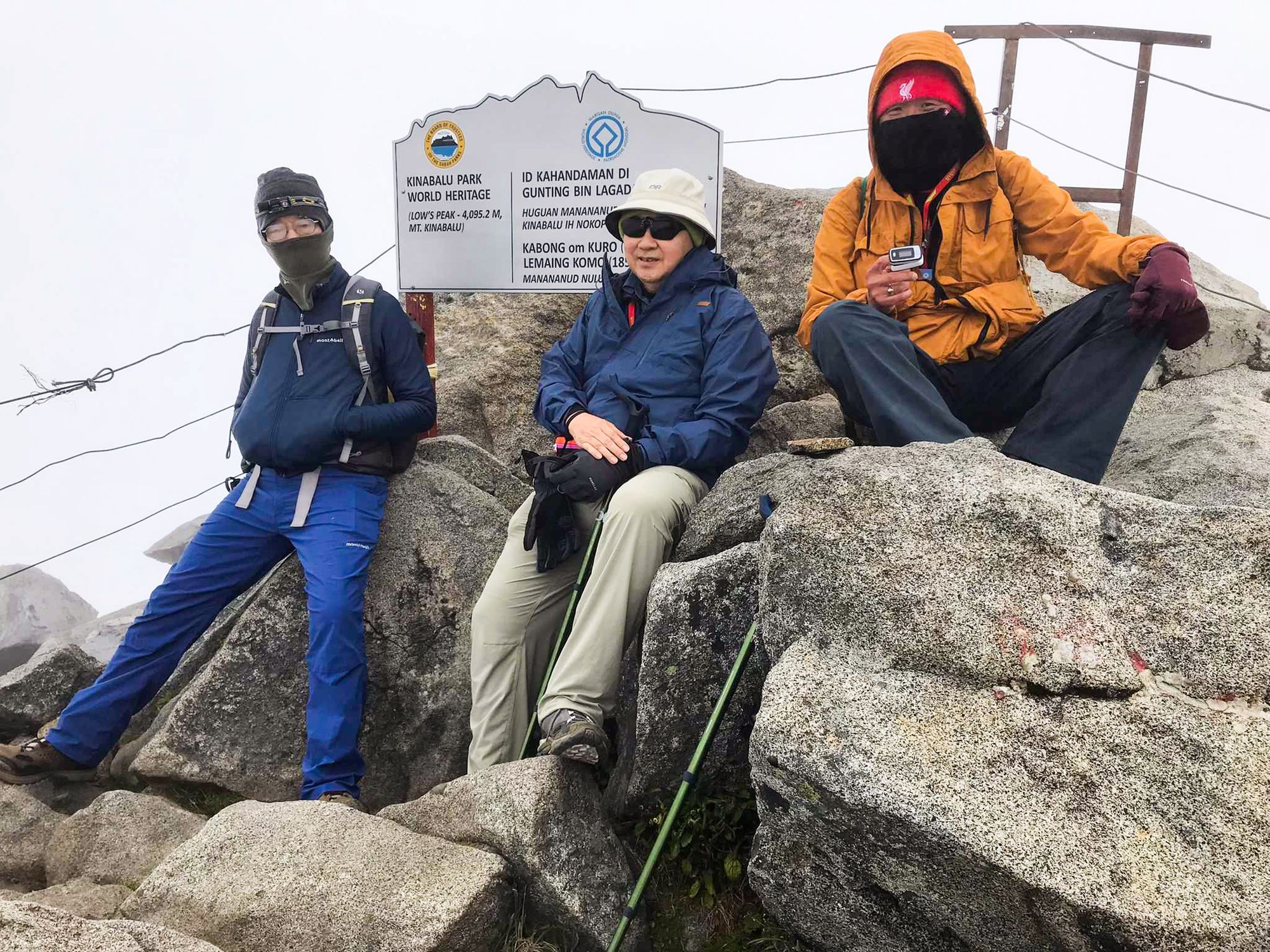
In some ways, KC’s story is a classical one of Singaporean redemption. The system regularly finds space for former detainees (like Ho Kwon Ping) or the children of exiles (like Janadas Devan) or people who’ve briefly misspoken (like Kishore Mahbubani). It is a redemptive power uncommon in more autocratic places, like China.
Yet most of these Singaporeans, as they are welcomed back into the establishment fold, appear to lose some credibility outside.
KC is different. There are few people in Singapore who are as accepted, if not celebrated, across the political spectrum. He still occasionally lunches with Tharman in the latter’s office, though is as likely to see Tan Wah Piow, whom he met in Johor Bahru in 2017, when Tan flew down to attend a 30-year reunion of Spectrum detainees. (Tan fears rearrest so has never been back to Singapore.)
This unique position put him in society’s crossfire during the closure of The Substation. In 2019, the government told the board that it would temporarily take away The Substation’s Armenian Street premises, KC says, “for ostensibly very sound reasons of wanting to do a major renovation. We welcomed that. But we were beguiled. They did not show their hand clearly that they wanted to change things.”
Of The Substation’s S$1m annual budget, S$350,000 was in the form of an NAC grant, S$150,000 was fundraised, and another S$500,000 was from the rental of spaces, including the garden. The board discovered that the government intended to not only take it away for two years, but thereafter make The Substation just one of many tenants—potentially drying up the rental revenue stream, 50 percent of its budget.
KC contrasts The Substation’s S$1m budget to The Esplanade’s (over S$80m) and The National Gallery’s (over S$73m), the latter of which comes from the Ministry for Culture, Community and Youth (MCCY).
KC appealed to people inside and outside the establishment. Tharman introduced KC to Edwin Tong, MCCY’s minister. “He was very, very sympathetic. And he kept repeating to me ‘I don't want The Substation closed down.’” Tong spoke to the new chairman of the National Arts Council (NAC), which had already pledged an extra S$100,000 annually (on top of their usual S$350,000 grant).
With just five months of their lease to go, the NAC delivered the bombshell: they could not offer any more money, but would help The Substation downsize and move to somewhere like the Goodman Arts Centre.
“We've been around for 30 years, we are so significant. If you really can't bring yourselves to see this, forget it. Why do we want to become a start-up again?”
The morning the board announced the closure, Tong immediately texted KC, asking him to delay the decision, and to chat with him after lunch. “I said we can talk anytime but the decision has been made.” They haven’t spoken since.
It is possible, KC says, that Tong may have wanted him to exhaust all other options, but that MCCY was always going to be the donor of last resort. We’ll never know. (Tong did not respond to a request for comment.)
Given some criticism by artists of its decision, the board solicited new financing proposals from the community. They received two, but neither was strong, says KC. Instead, they accepted the offer by board-member Yuni Hadi to lead a drastically reduced board and organisation. The rest, including KC, stepped down.
Critics believe that the government was quite happy to see The Substation go, precisely because it nurtured so many artists whose work prompts the very “conscientisation” that KC experienced. KC appreciates this view but disagrees. “I don't think it's anything sinister, but out of their own benighted lack of appreciation of what The Substation’s significance is to Singapore arts and culture.”
Moreover, critics worry that it’s all part of a broader government strategy to nullify activists, grassroots organisations and other bits of civil society, as well as pesky students such as those from Yale-NUS College (YNC), which it is shutting down.
To think about it another way, the brutality of Spectrum wouldn’t pass muster today, partly because there’s nobody around with Lee’s authority. Perhaps the government’s more delicate tactics—excuses about YNC, Tong’s sweet words to KC about The Substation—just reflect a more sophisticated apparatus.
I pushed KC on their closures: “These may be just conspiracies in my mind, but is there some pattern here where they [the PAP] have realised that they actually have to strangle some of these youth institutions?”
“You see, Sudhir, there's no conspiracy,” KC responds, calmly, having repeatedly tried to interrupt my cynical mind. “Control is key to the government's modus operandi. All these institutions are outside their control, they do not like it…They think that if they have control, that is, to put it in the most positive light, that is best for Singapore's future. They don't realise that that is a mistaken idea, you must have some degree of no control. That is best for Singapore's future. Because that diversity is what will make Singapore survive.”
It seems like a fine distinction that he’s making: that while there’s no proactive “conspiracy”, or broad strategy to choke non-establishment actors, there is a more reactive instinct when the establishment feels like it’s losing control in a space.
KC believes that although Singapore has had a good government “in terms of development”, it’s a shame that it’s not doing more to “build a society which we can be proud of.” For him, this means enlightened policies towards citizens, firstly, but also non-citizens. The “horrendous lack of generosity towards our foreign workers” especially saddens him. “Charity begins at home,” he repeats. He also thinks we should be doing a lot more in terms of international aid: “The political leadership in this country can lead the way to making Singapore really a beacon on the hill, in terms of what a society can be.”
A common conservative response to that is that Singapore’s lack of welfare is the reason for its success. “I'm not persuaded by that argument because the argument suggests an all-or-nothing approach. As the Hokkiens might say, teng sar teng kor, take out your shirt, take out your trousers. Who's asking you to do that? You're in a position to precisely control it and release it at an appropriate pace and measure…no one is asking you to open the floodgates of generosity.”
KC has much empathy for those in the system, including Lee’s foot-soldiers. Both KC and Lam Keong, in separate conversations, stressed that the ISD officers really had little agency, and were making the best of a bad situation. Since Spectrum KC has met several of his jailors, even Sim Poh Heng, the deputy director who beat KC till he bled. “I’ve no ill will towards him. He was just a bit enthusiastic about doing his job.”
Surely the people who aid, abet and enable tyrannical behaviour must also be held to account? Perhaps KC’s empathy, generosity and optimism mean that he, the connector, will always be vulnerable to accusations of being an apologist—for either side.
Or maybe this is the special thing about Singapore’s political system. In many illiberal democracies and autocracies, progressive insiders and outsiders are often at odds with each other, just by virtue of their relative orbits: the former perceived as sell-outs, the latter as troublemakers.
Singapore’s small size and shared ancestries mean that the lines are blurry. Is one ever only on the inside or outside? The fluidity between the two could be a defining characteristic of our city-state. The trajectories of KC, Tharman and Lam Keong, who through their lives have levitated closer to and then further from the political inner circle, suggest that an insider-outsider dichotomy is too simplistic.
Perhaps KC, whether he’s connecting activists to each other or funders to the universities, is slowly nudging us to a place beyond the antagonisms and polarisations that hobble the world.
“The meaning of life is in relationships” is a motto he’s had for three decades. Special ones, he told me, are with his children, sisters, Chan, and close friends like Gluck and Lam Keong. But to him this concept is more complex.
“Now, 30 years later, I'll just refine that a little bit more. The meaning of life is our experience of relationships. And by relationships, I mean, all the relationships that we have: the good relationships, the bad relationships, the relationships with people that hate us, with people that oppress us.”
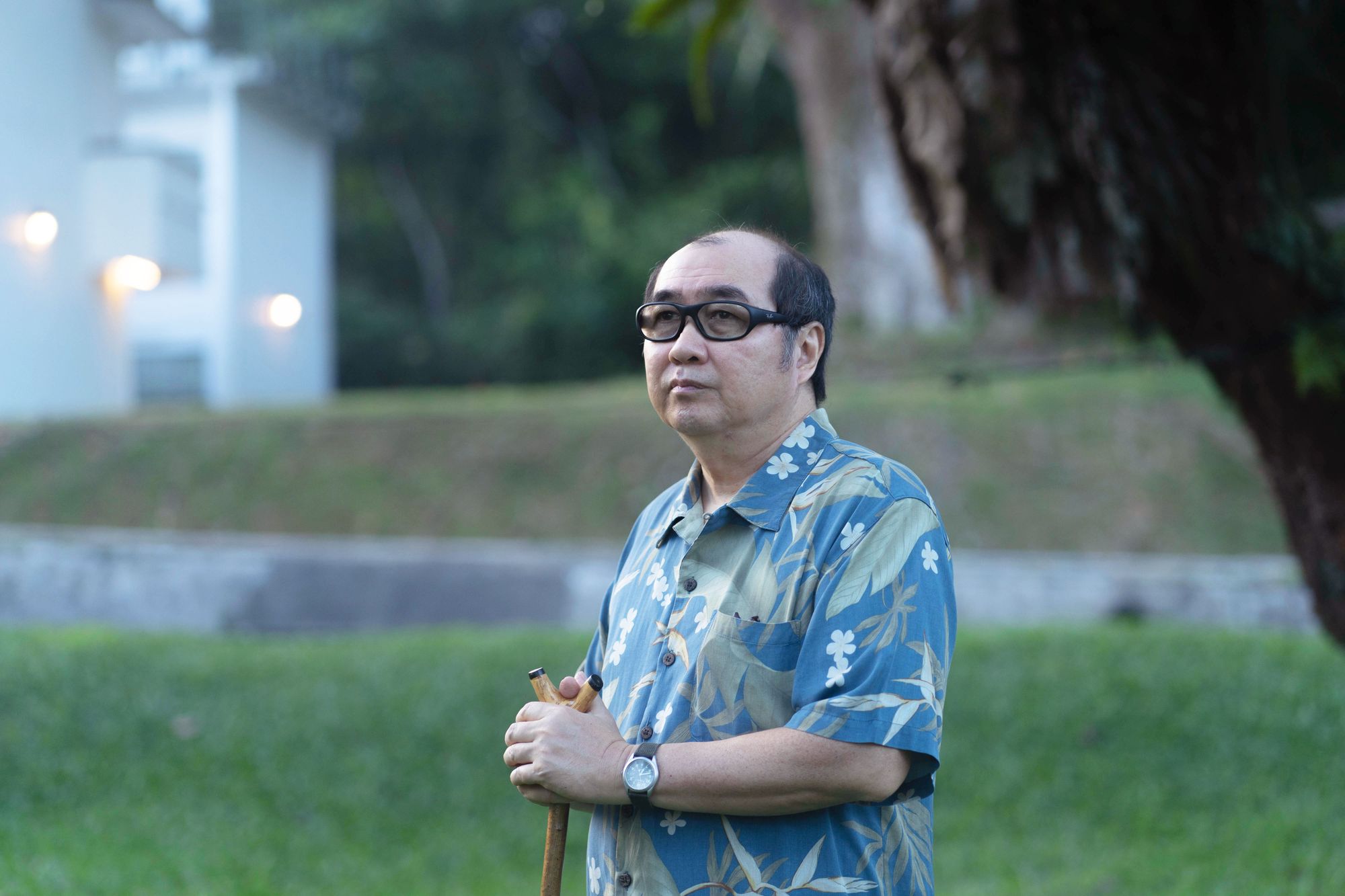
After we sat KC down for the lead image of this profile, he picked for background music Simon & Garfunkel. When “Bridge Over Troubled Water” played, he smiled. He remembers detainees singing it in their cells, both in solitary and shared. It was popular, KC says, because its chorus lends itself to a baritone thunder that could reverberate around the Whitley Road Detention Centre. It was not just the words but the vibrations that comforted them.
Like a bridge over troubled water
I will lay me down
Like a bridge over troubled water
I will lay me down
The song has a second meaning for KC. When he was 16, during his study-abroad year in the US, there was a 23-year-old American girl he liked, “my first crush”. He remembers her riding her bicycle down a quiet, Oregonian country road, her hair blown back, her hands off the handlebar, as he hummed the song’s third verse:
Sail on silver girl
Sail on by
Your time has come to shine
All your dreams are on their way
And as 65-year-old KC sat in his Linden Road apartment, connecting momentarily with 30-year-old KC in detention and 16-year-old KC in Oregon, his different selves floating ethereally together, it seemed clear that he’d live each one again.
Sudhir Vadaketh is Jom’s editor-in-chief. Photography assistance: Kee Ya Ting
Style note: Jom’s house style is to use the first name of our profile interviewees but the last names of everybody else. In this case, we made an exception for Tharman (Shanmugaratnam) and (Yeoh) Lam Keong because of common usage and the story thread.
Letters in response to this piece can be sent to sudhir@jom.media. All will be considered for publication on our “Letters to the editor” page.
Correction: an earlier version said that KC has been chairman of Harvard’s interviewing committee in Singapore since 1983, without mentioning that he’s had a co-chair for the past 15 odd years. It also mentioned, as a follow-up to but we have no legends, a second work-in-progress from KC, Lam Keong, and Tharman. The work actually had numerous other authors so was not “their[s]”, as had been earlier reported. These have both been updated.
If you enjoy Jom’s work, do get a paid subscription today to support independent journalism in Singapore.


